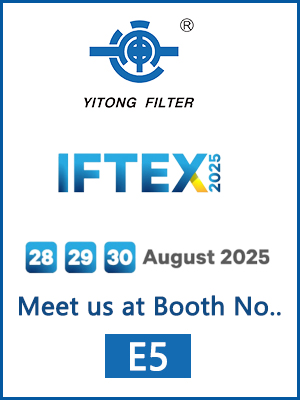 November 19, 2025
November 19, 2025
Clean and safe indoor air is critical in every healthcare facility. Hospitals must carefully control airborne bacteria, viruses, dust, and harmful particles to protect patients, medical staff, and sensitive medical equipment. One of the most effective technologies used for this purpose is the hospital HEPA filter, a high-performance medical HEPA filter designed specifically for demanding healthcare environments.
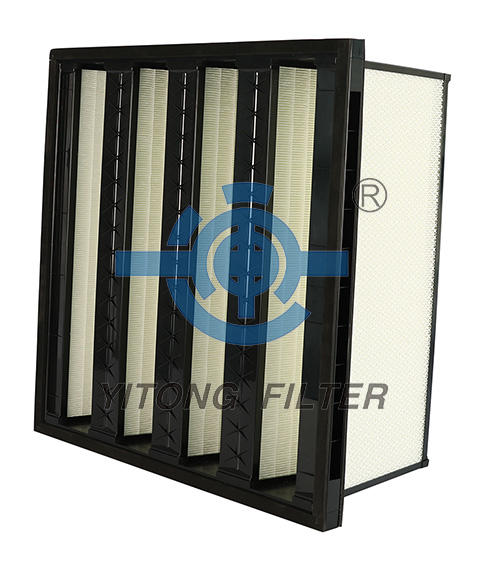
Today, hospital air filtration has become a front-line defense in infection control. Whether installed in operating rooms, ICUs, isolation rooms, cleanrooms, or central HVAC systems, HEPA filters for healthcare play an essential role in maintaining a healthy and stable indoor environment.
A HEPA (High-Efficiency Particulate Air) filter is an advanced filter capable of capturing 99.97% of particles at 0.3 microns. This includes bacteria, viruses attached to aerosols, mold spores, fine dust, and other contaminants that pose risks in healthcare settings.
Hospital HEPA filters are built to meet strict medical requirements. Compared with standard air filters, these medical-grade HEPA filters offer higher efficiency, stronger structural stability, and superior long-term performance under continuous airflow.
1. Reducing Infection Risks
Infection control is a top priority in every healthcare facility. HEPA filters for hospitals remove airborne pathogens and prevent infections from spreading between patients, doctors, and visitors.
2. Meeting Healthcare Ventilation Standards
Modern hospitals follow strict guidelines such as ISO 14644, EN 1822, and ASHRAE healthcare ventilation standards. Healthcare ventilation filters, especially H13 and H14 HEPA filters, help hospitals meet these requirements.
3. Supporting Airborne Containment
Areas like isolation rooms (AIIR) depend on HEPA filters for isolation rooms to capture infectious particles such as tuberculosis, influenza, and COVID-19.
4. Improving Overall Indoor Air Quality
By reducing airborne contaminants, hospital HVAC HEPA filters help create cleaner, safer environments across entire buildings.
Hospital HEPA filters use several filtration mechanisms:
• Interception
Captures medium-sized particles that follow the airflow.
• Impaction
Traps larger particles that cannot follow the bending air stream.
• Diffusion
Captures extremely small particles like viruses due to their random movement.
These combined mechanisms allow cleanroom HEPA filters to deliver outstanding performance even at high airflow rates.
1. Operating Rooms
Hospitals rely on HEPA filters for operating rooms to maintain ultra-clean air and protect open surgical sites from airborne contamination.
2. Intensive Care Units (ICUs)
Critically ill patients benefit from clean air delivered through HEPA filters for ICUs, reducing the risk of complications.
3. Isolation Rooms
Negative pressure rooms must prevent contaminated air from escaping, which is why HEPA filters for isolation rooms are essential for infection containment.
4. Hospital Pharmacies and Laboratories
Cleanrooms, compounding pharmacies, and medical research labs depend on cleanroom HEPA filters for particle control.
5. Central HVAC Air Systems
Large facilities often integrate hospital HVAC HEPA filters directly into air handling units to control air quality building-wide.
• H13 HEPA Filters
Provide ≥99.95% efficiency at 0.3 microns. Common in general hospital settings.
• H14 HEPA Filters
Provide ≥99.995% efficiency. Suitable for operating rooms, ICUs, and critical cleanrooms.
• HEPA Terminal Filters
Installed at the air outlet for localized high-cleanliness zones.
• Compact / V-Bank HEPA Filters
Used in high-airflow hospital HVAC systems.
When choosing HEPA filters for healthcare, hospitals consider:
Required efficiency: H13 or H14 medical HEPA filters
Airflow and pressure drop requirements
Compatibility with existing HVAC or terminal units
Application (operating room, ICU, isolation room, pharmacy, etc.)
Maintenance and service life expectations
Selecting the correct air filtration system for healthcare facilities ensures reliability and long-term cost efficiency.
1. Regular Monitoring
Technicians monitor airflow and pressure drop to ensure the filter is working properly.
2. Leak Testing (DOP/PAO)
Mandatory for all cleanroom HEPA filters to confirm there are no bypass leaks.
3. Scheduled Replacement
Most hospital HEPA filters are replaced every 1–3 years depending on usage.
4. Safe Disposal
Used filters are treated as medical waste due to potential contamination.
Reduce airborne infection risks
Improve patient safety
Protect healthcare workers
Support clean surgical environments
Meet hospital air filtration standards
Improve efficiency of ventilation systems
Hospital HEPA filters remain one of the most important components in modern healthcare ventilation systems. They protect vulnerable patients, maintain clean environments in critical areas, and help hospitals meet strict air quality standards. As hospitals continue to focus on infection control and patient safety, the use of medical HEPA filters and healthcare air filtration solutions will continue to expand.
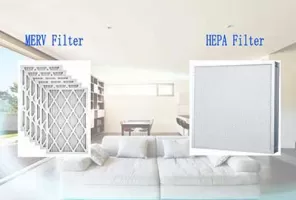 Mar. 27, 2024
What is the difference between MERV Filter and HEPA Filter?
Mar. 27, 2024
What is the difference between MERV Filter and HEPA Filter?
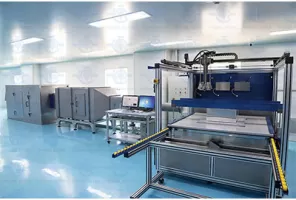 Nov. 18, 2024
Understanding and Controlling Cleanroom Contamination Sources
Nov. 18, 2024
Understanding and Controlling Cleanroom Contamination Sources
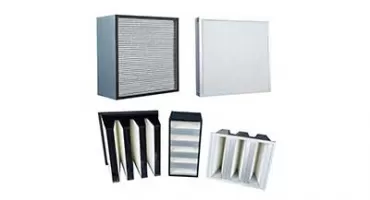 Jun. 30, 2023
How to Choose an High Efficient Air Filter Correctly?
Jun. 30, 2023
How to Choose an High Efficient Air Filter Correctly?

